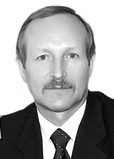Socio-psychological evaluation of sports activity as factor of students’ satisfaction with university academic service
Фотографии:
ˑ:
PhD, Associate Professor N.A. Vakhnin1
PhD, Associate Professor A.B. Makhovikov1
PhD, Associate Professor V.V. Sharok1
1Saint-Petersburg Mining University, Saint-Petersburg
Objective of the study was to identify the psychological factors of satisfaction with the conditions for sports activities at the university.
Methods and structure of the study. Sampled for the study were the full-time students of St. Petersburg Mining University. The total number of respondents was 264 people. During the study the following research methods were applied: questionnaire survey, which was based on the questionnaire "Rating satisfaction with university academic service", psycho-diagnostic tools (M. Luscher color test), diagnostics of the actual structure of values by the method of S. S. Bubnova, statistical data processing, including analysis of primary statistics, analysis of contingency tables, comparative and correlation analyses.
Results of the study and conclusions. It was found that the sport dimension is associated with overall satisfaction, but not more than with the rest of the training conditions. It should be noted that students dissatisfied with the sport dimension are also more often dissatisfied with other aspects of training. By analyzing the contingency tables in the studied groups, we identified differences in color associations with the concepts of "past", "future", "I am a student" and "occupational work". The analysis of the results of diagnostics of the actual structure of values confirmed the identified trend: among the students dissatisfied with the sport dimension, the percentage of those considering themselves to be a decisive person was significantly lower than among those satisfied. The comparative analysis conducted in the study groups revealed differences in the significance of health value. The students dissatisfied with the sport dimension disesteemed the health value and were characterized by unwillingness to do anything to strengthen it.
Keywords: health values, psychological factors of satisfaction, physical education, correlation analysis.
References
- Bakeshin K.P. Razvitie samostoyatelnoy poznavatelnoy deyatelnosti studentov stroitelnogo profilya v protsesse ovladeniya navykami resheniya takticheskikh zadach (na primere boksa) [Cognitive qualities mobilizing boxing tactics mastering model for civil engineering university students]. Teoriya i praktika fiz. kultury. 2019. # 11. pp. 51-53.
- Grigoryev V.I., Gerasimova I.G., Novikova E.S. Forsayt tendentsiy i napravleniy razvitiya studencheskogo sporta [Foresight of university sport progress trends and avenues]. Teoriya i praktika fiz. kultury, 2018, no. 4, pp. 25-27.
- Dementyev K.N. Motivatsionnaya obuslovlennost zanyatiy fizicheskoy kulturoy uchascheysya molodezhi [Motivational basis for youth physical education process]. Teoriya i praktika fiz. kultury. 2017. no. 11. pp. 33-35.
- Zarodnyuk G.V., Pakholkova N.V., Selyukin D.B. Prognosticheskoe razvitie fizicheskoy kultury studentov v vysshikh uchebnykh zavedeniyakh Rossii [Prognostic progress of academic physical culture of students in higher educational institutions of Russia]. Teoriya i praktika fiz. kultury. 2019. # 4. pp. 11-13.
- Karavan A.V., Dementyev K.N., Mironova O.V. et al. Vliyanie zanyatiy fizicheskoy kulturoy na formirovanie komponentov volevoy aktivnosti studentov v adaptatsionny period [Effect of physical education classes on formation of components of students' volitional activity in adaptation period]. Aktualnye problemy fizicheskoy i spetsialnoy podgotovki silovykh struktur. 2014. # 4. pp. 33-39.
- Kostyuchenko V.F., Rudenko G.V., Dubrovskaya Yu.A. Formirovanie fizicheskoy kultury grazhdan v kontekste strategii razvitiya fizicheskoy kultury i sporta v RF [Mass physical culture encouragement policies in context of national physical education and sports sector development strategy]. Teoriya i praktika fiz. kultury. 2019. # 3. pp. 35-38.
- Ponomarev G.N., Kuvanov Ya.V., Selyukin D.B. Fizicheskaya kultura v vysshem obrazovanii – vazhnaya sostavlyayushchaya podgotovki budushchikh spetsialistov [Role of academic physical education in higher education system]. Teoriya i praktika fiz. kultury. 2019. # 3. pp. 12-15.
- Pristav O.V., Dementiev K.N., Mironova O.V. et al. Issledovaniya motivatsionnoy sfery studentov-plavtsov vuzov v kontekste populyarizatsii fizkulturno-sportivnoy deyatelnosti [Studies of motivational sphere of academic swimmers in context of popularization of physical education and sports]. Uchenye zapiski universiteta im. P.F. Lesgafta. 2014. # 10 (116). pp 208-212.
- Savelyev D.S., Sidorenko S.A. Vliyanie zanyatiy sportivnymi edinoborstvami na psikhofiziologicheskiy potentsial studentov – pervokursnikov [Effects of competitive martial arts on first-year students' psychophysiology]. Teoriya i praktika fizicheskoy kultury. 2017. no. 5. pp. 43-45.
- Elmurzaev M.A., Panchenko I.A., Pakholkova N.V. Sotsialno-psikhologicheskaya model zdorovya i fizicheskoy rekreatsii [Socio-psychological health/ physical recreation model]. Teoriya i praktika fiz. kultury. 2019. no. 6. pp. 44-47.



 Журнал "THEORY AND PRACTICE
Журнал "THEORY AND PRACTICE